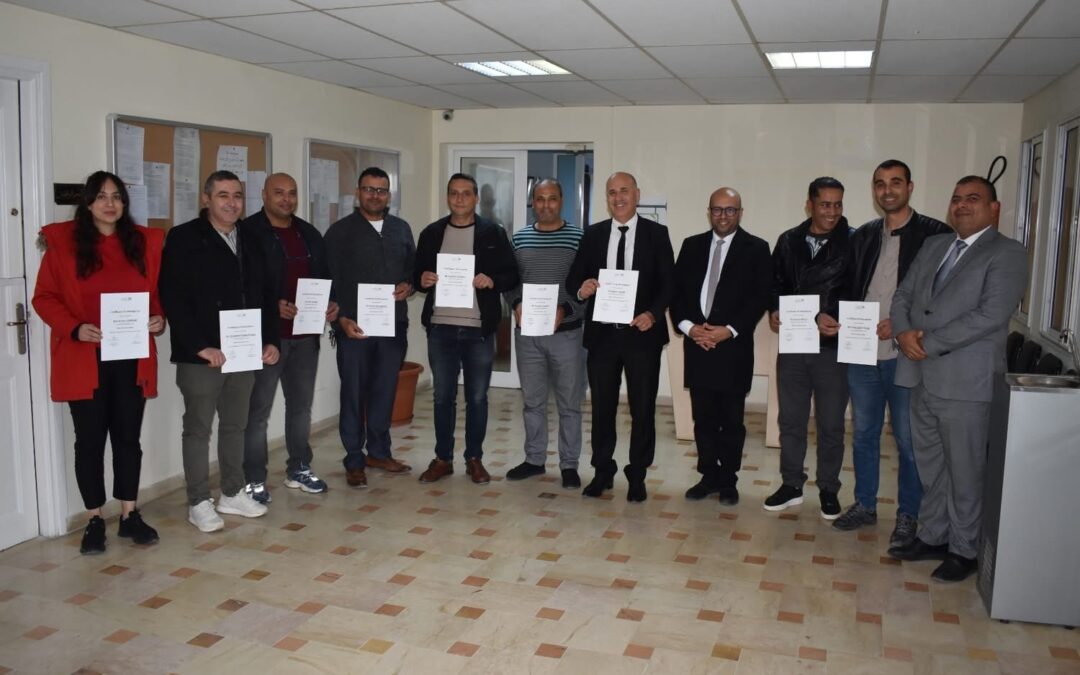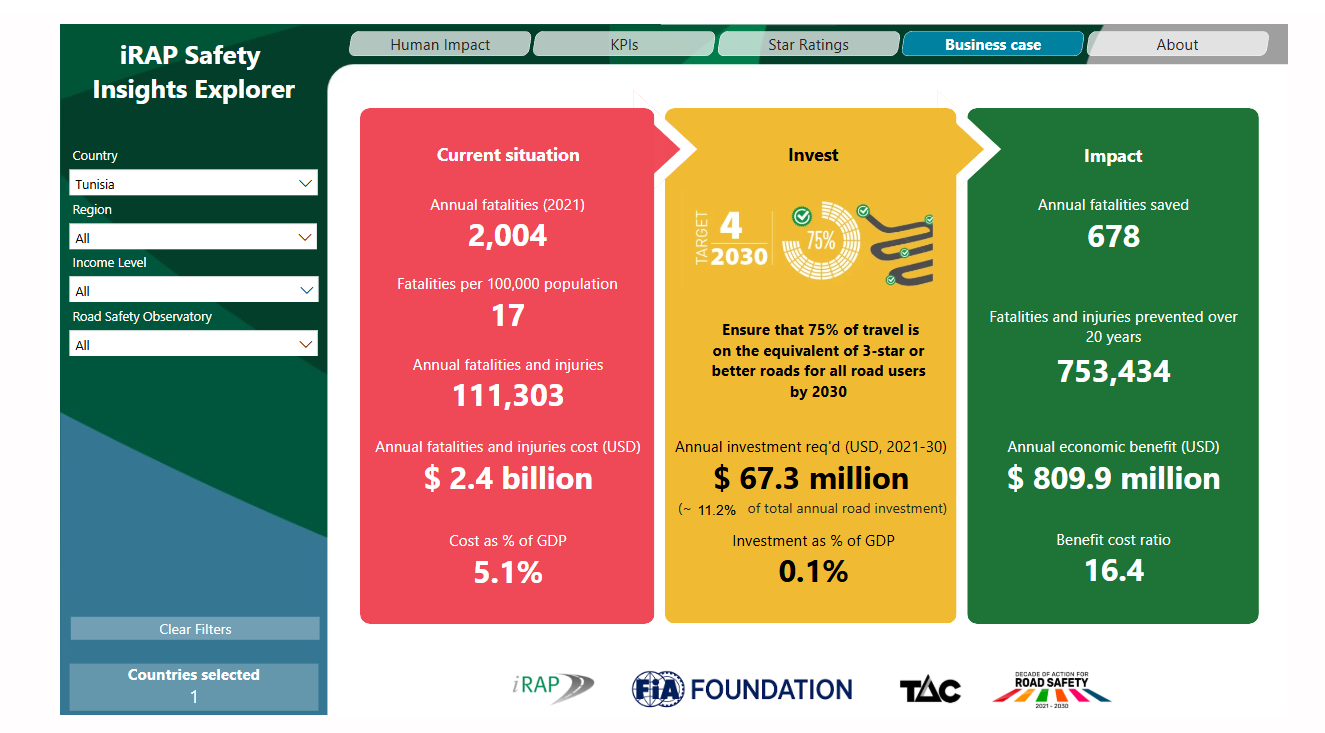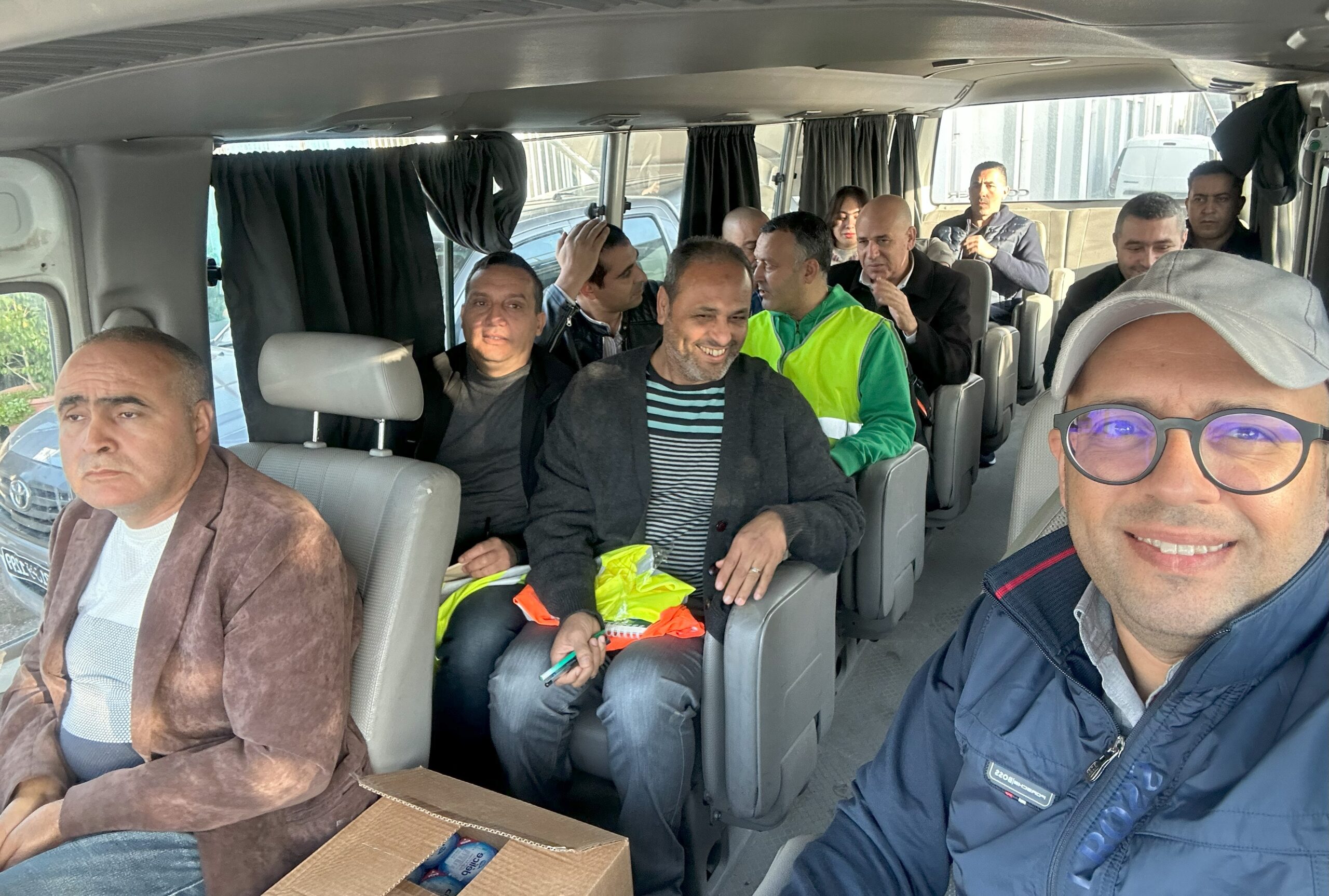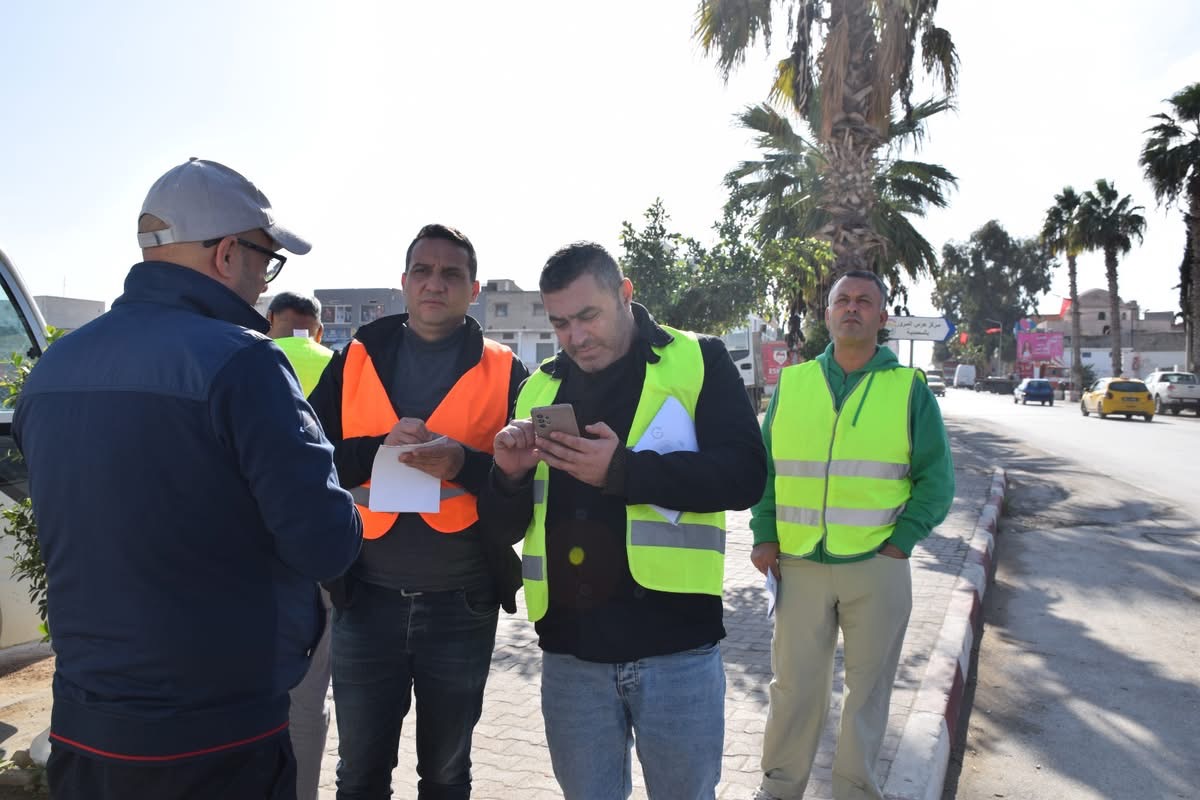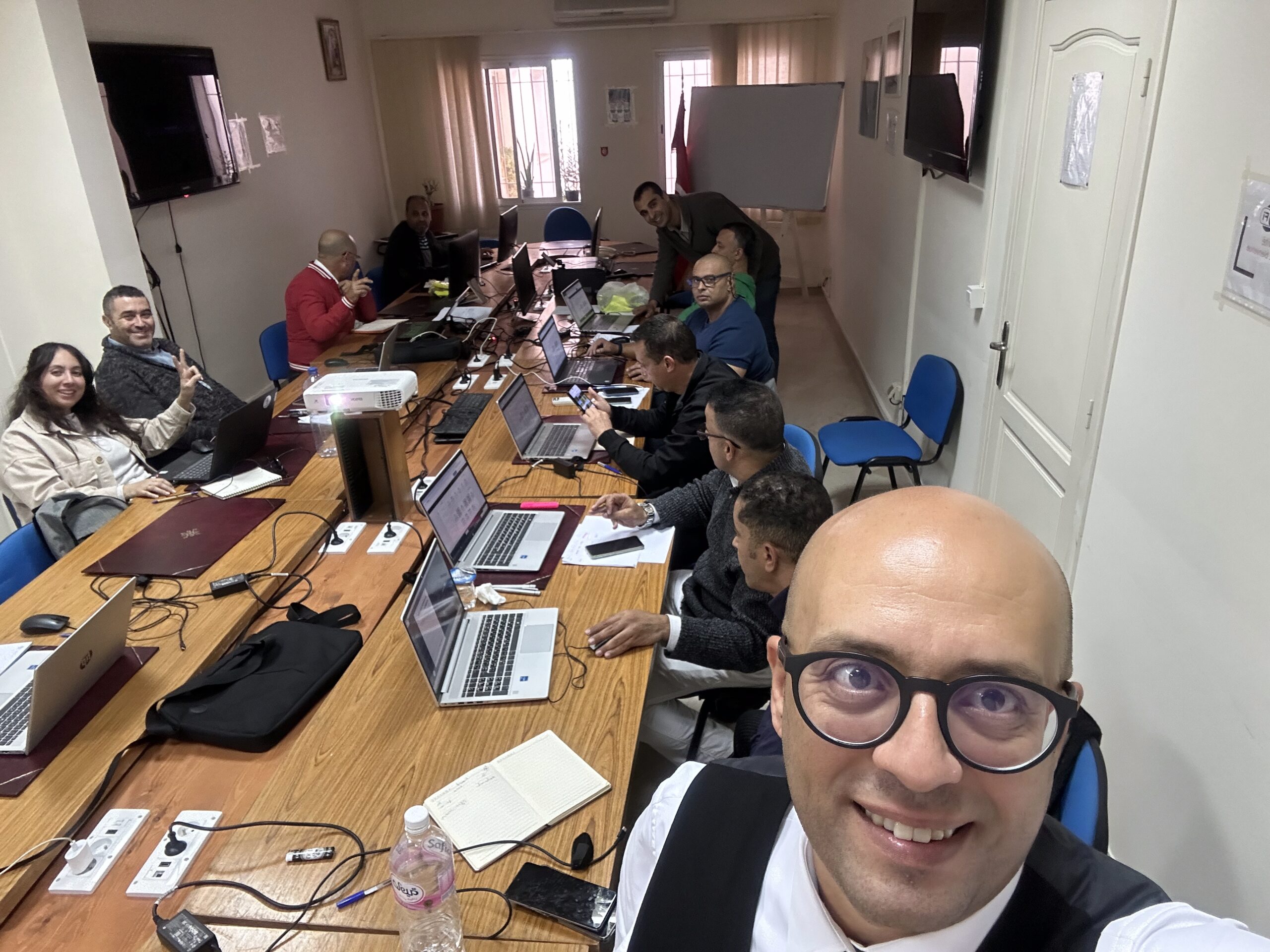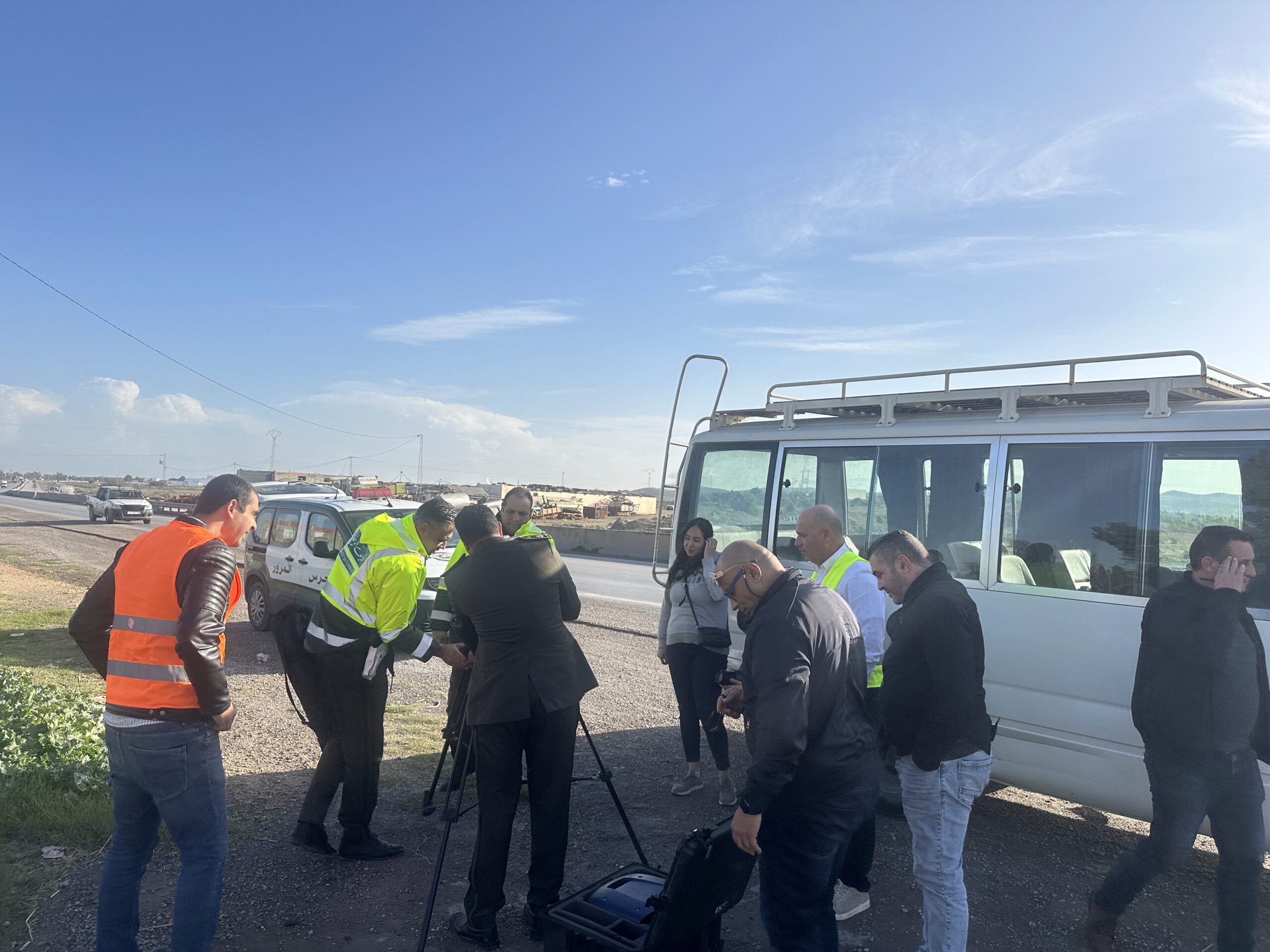December 2-6: The National Road Safety Observatory in Tunisia hosted an intensive 5-day iRAP training session. This initiative aimed to enhance the skills of Tunisian professionals in assessing and improving road infrastructure, with the ultimate objective of reducing fatalities and severe injuries on the roads.
A Comprehensive Methodology in Three Key Steps
The training provided participants with a thorough understanding of the essential steps involved in applying the iRAP methodology to existing roads:
- On-Site Road Inspection: This phase covered the collection of speed data, traffic flow recording, and georeferenced video capture of National Road n3. These activities provided a precise and comprehensive overview of the road.
- Road Coding: Participants were trained to analyze the detailed attributes of roads, a crucial step in identifying risk factors and understanding the safety challenges of existing infrastructure.
- Investment Planning: The final phase focused on proposing effective and cost-efficient countermeasures to improve safety for all road users and minimize fatal and serious injuries.
Enriching and Targeted Technical Discussions
Ahmed ksentini, who conducted the training, emphasized the value of the discussions held during the session:
“This training, which brought together professionals from Tunisia’s road safety sector, was enriched by highly technical and targeted discussions. It allowed them to explore the iRAP model in great depth, and better understand its approach. These in-depth and technical exchanges were a pleasure to share with the members of the Observatory.”
Such discussions not only clarified the nuances of the iRAP methodology but also fostered collaboration among ONSR road safety professionals.
Building Capacity for Safer Roads
This training aligns with broader efforts to promote knowledge sharing and strengthen local capacities. By equipping professionals with the tools and insights to apply the iRAP methodology, the program supports the development of a sustainable road safety culture in Tunisia.
iRAP continues to play a critical role in assisting low- and middle-income countries like Tunisia to achieve global road safety targets, particularly in the context of the second decade of action for road safety.
According to iRAP’s Safety Insights Explorer, achieving UN Target 4 for greater than 75% of travel on 3-star or better roads for all road users in Tunisia by 2030 stands to save over 753,434 fatalities and serious injuries over the 20-year life of road treatments with an economic benefit of USD$809.9 million – more than $16.4 for every $1 spent.
Image credits (Above and below): Ahmed ksentini and the National Road Safety Observatory


